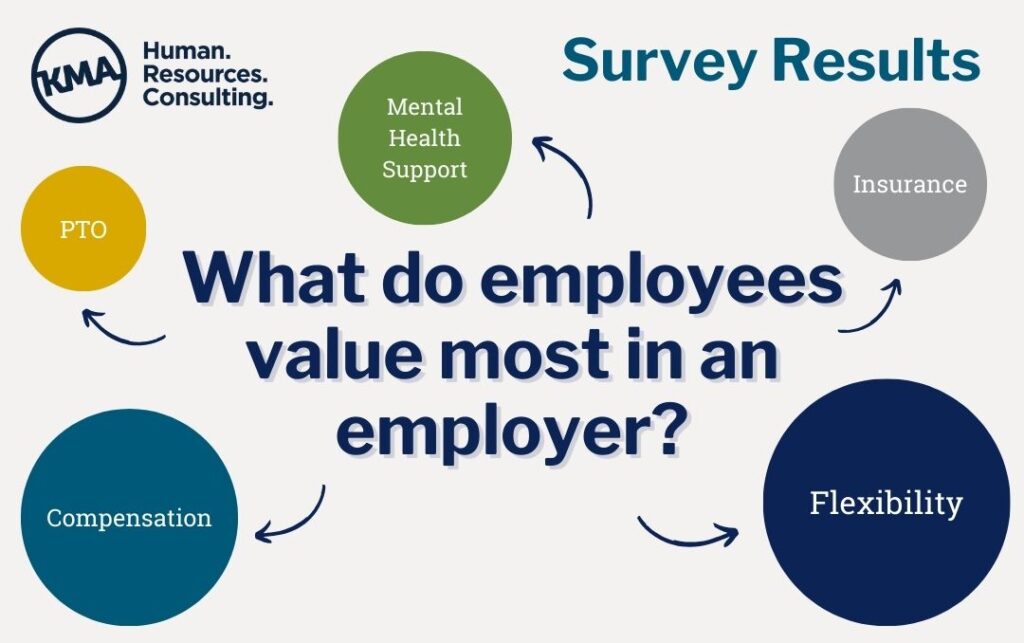
By the KMA Team
As HR, recruiting and compensation consultants, we operate at the intersection between employer and employee, and specifically at the crossroads of what the employer offers, and what the employee requires. It is a constant push and pull that we navigate with our clients, who rely on us to help attract, manage and retain top talent, and incentivize the behaviors that drive success.
To update our understanding of what it is candidates and employees value most in the employer relationship, we conducted a survey during the first six weeks of 2024 designed to answer just that.
We learned that, nearly four years after the disruption of a global pandemic, some things have changed and some remain the same. Flexibility in where and when people work is in as high demand as ever. It’s clear that the world in which most people commute to a central office five days a week is a thing of the past and that flexible/hybrid work arrangements are here to stay. No surprise, our results also confirmed that when it comes to compensation and benefits, wages are still the number one priority for employees and prospective employees in evaluating a job.
In terms of creative benefits and perks, flexible workweeks and mental health support ranked highest, while on site recreation, pet insurance and company outings ranked the lowest. Reputation and stability were top factors for choosing to join (or remain at) a company, with culture and employee wellness initiatives also key considerations.
Overall, the results provided confirmation of the trends we have been seeing over the last few years in a post-pandemic, candidate-driven job market. Employees value autonomy and to be trusted by their managers to get work done – where and when it is convenient for them. Employees want to be compensated fairly and transparently. They value robust compensation and benefits offerings, and appreciate a culture that supports employee wellbeing through mental health care and policies that uphold work/life balance.
Demographics:
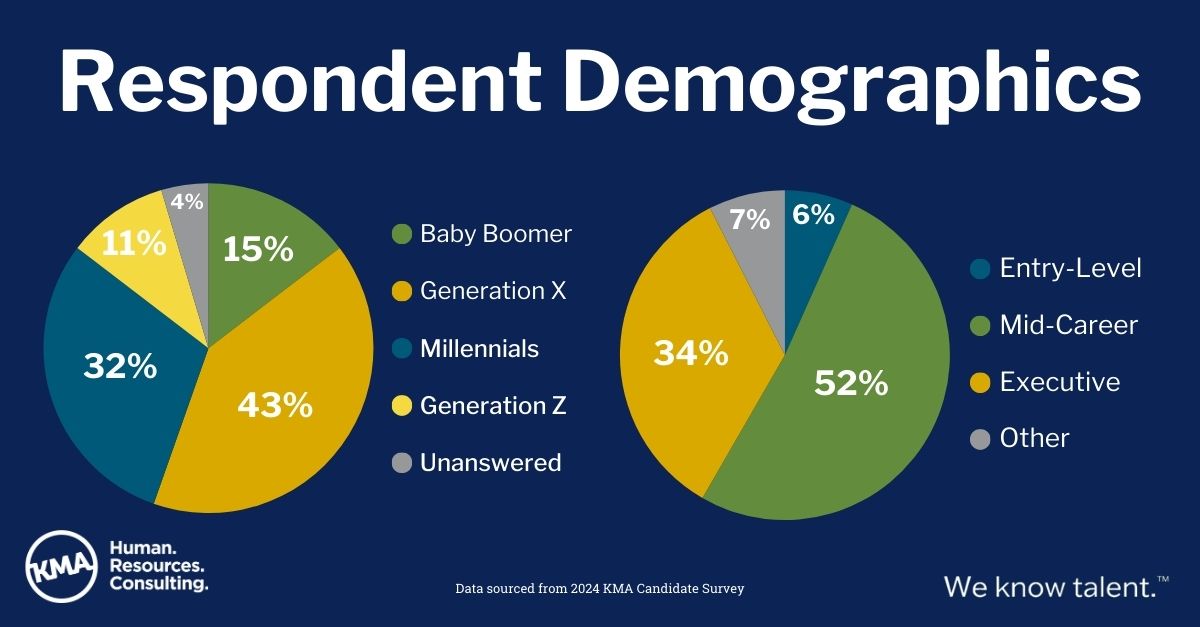
Key Insights:
When asked how important flexibility is in remote work options and flexible hours, a scant 3% answered not important.
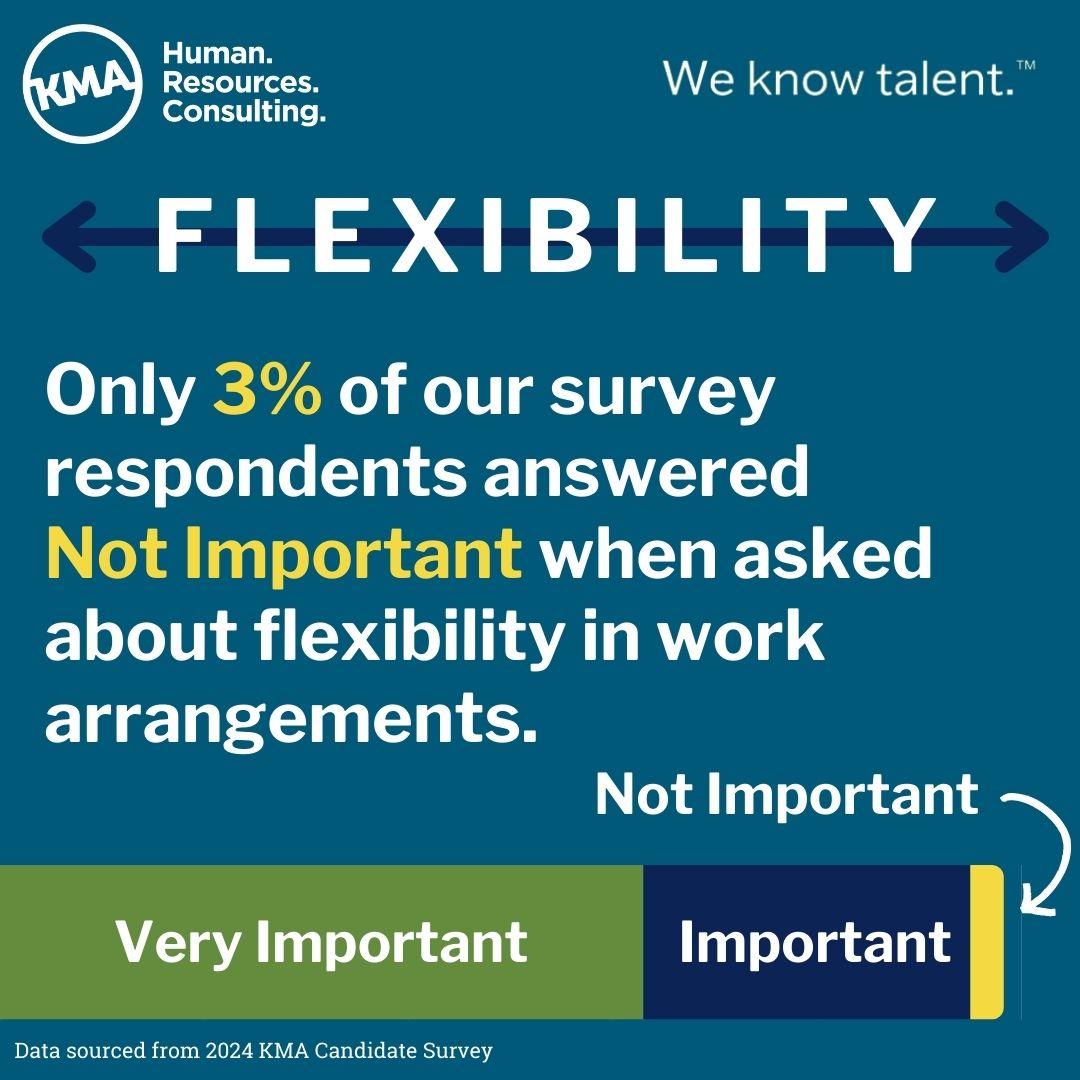
Wages are the single most important consideration
among traditional compensation and benefits components.
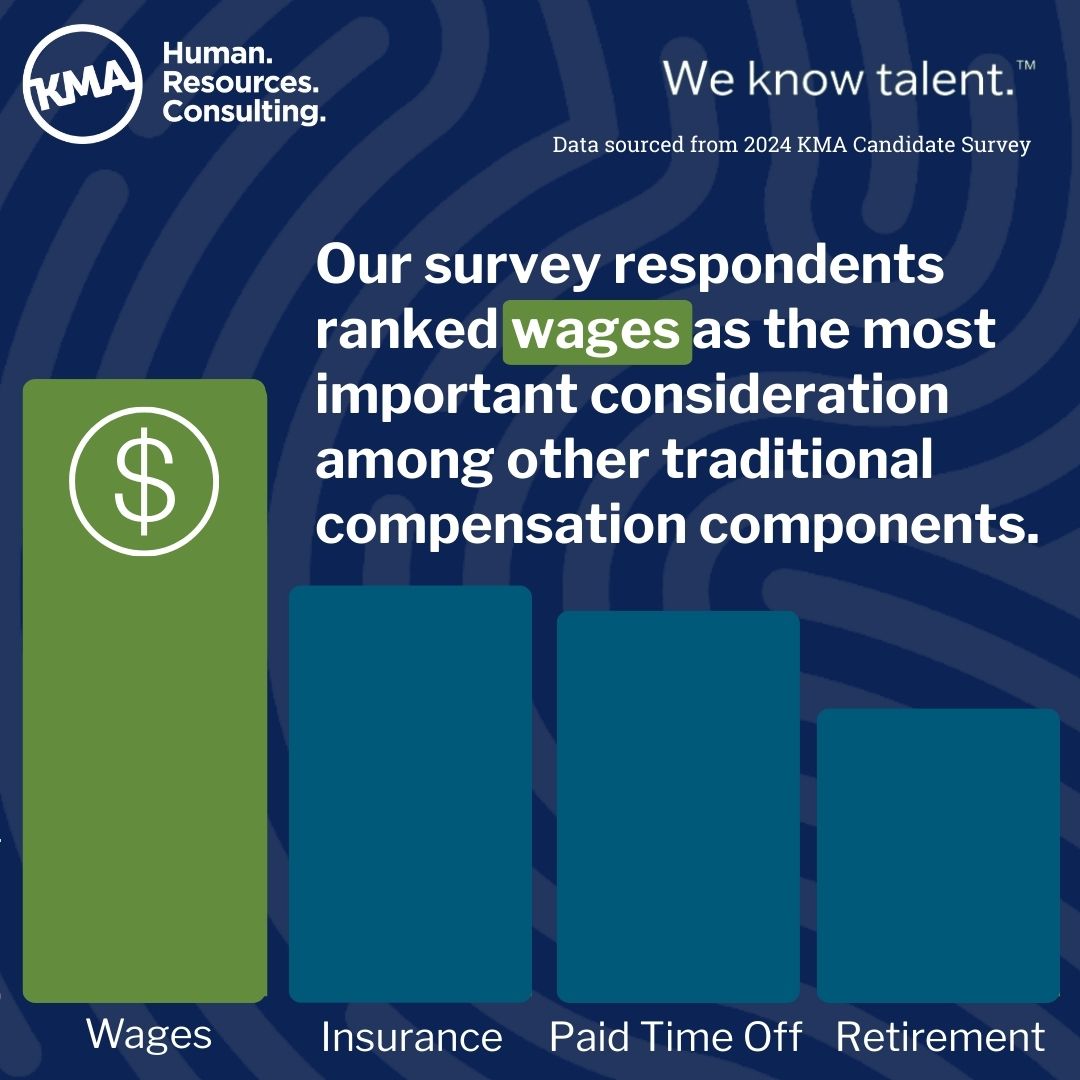
Among workplace offerings, flexible workweeks and mental health support ranked highest, while on site recreation, pet insurance and company outings ranked the lowest.
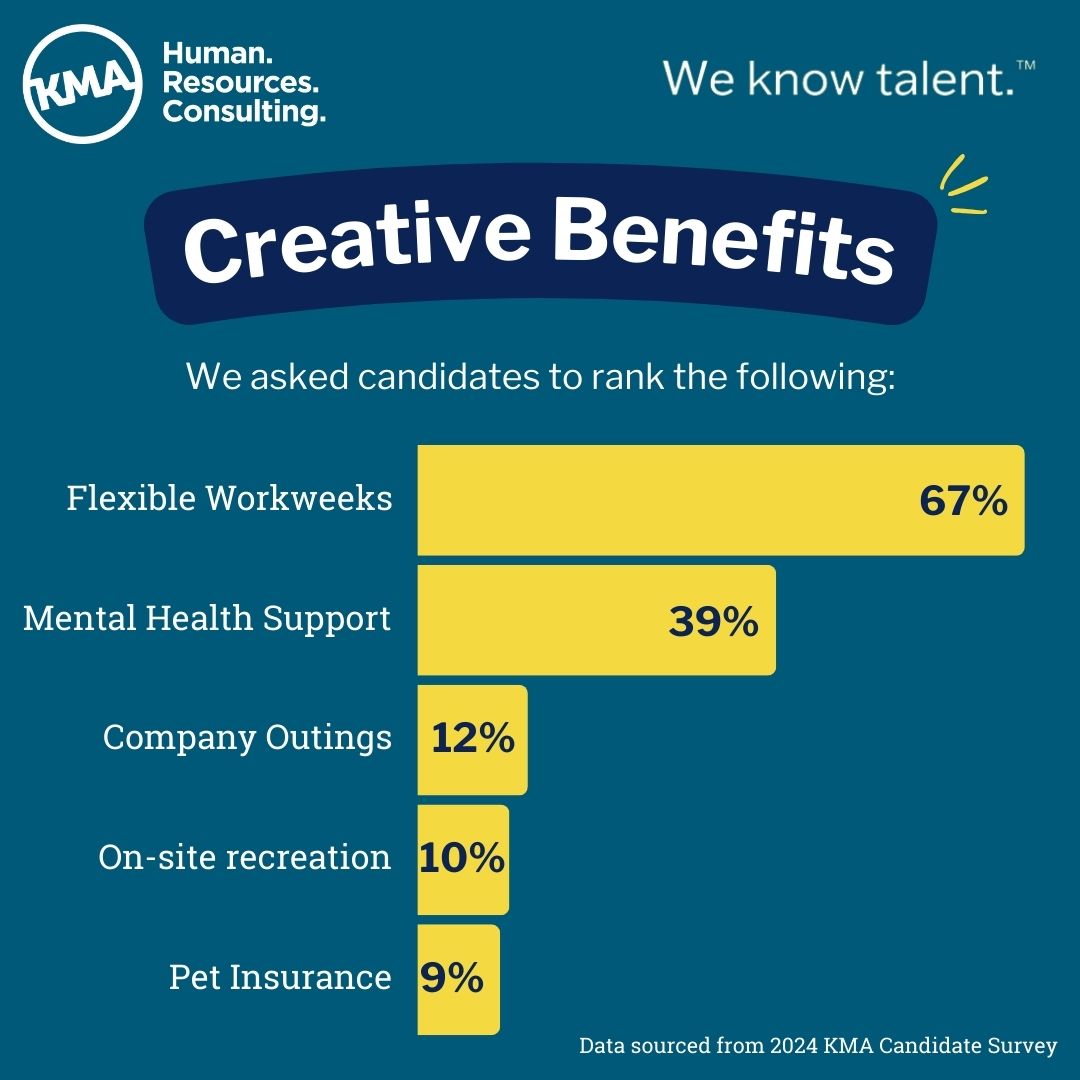
When considering a potential employer, respondents ranked company reputation and stability highest, with culture and employee wellness initiatives close behind.
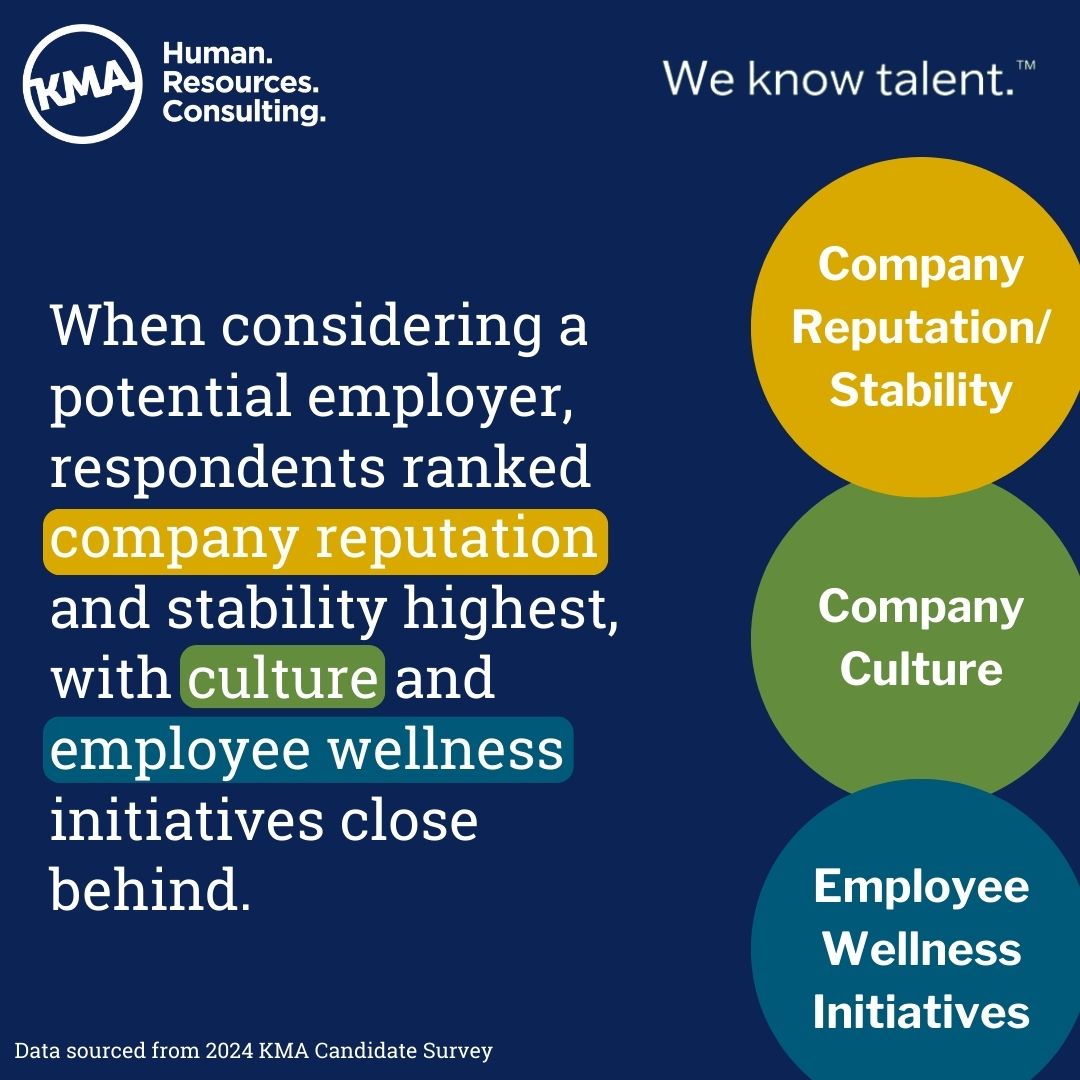
About 50% answered that a company’s commitment
to DEI was very important, while at the other end of the spectrum,
18% said it was not important.
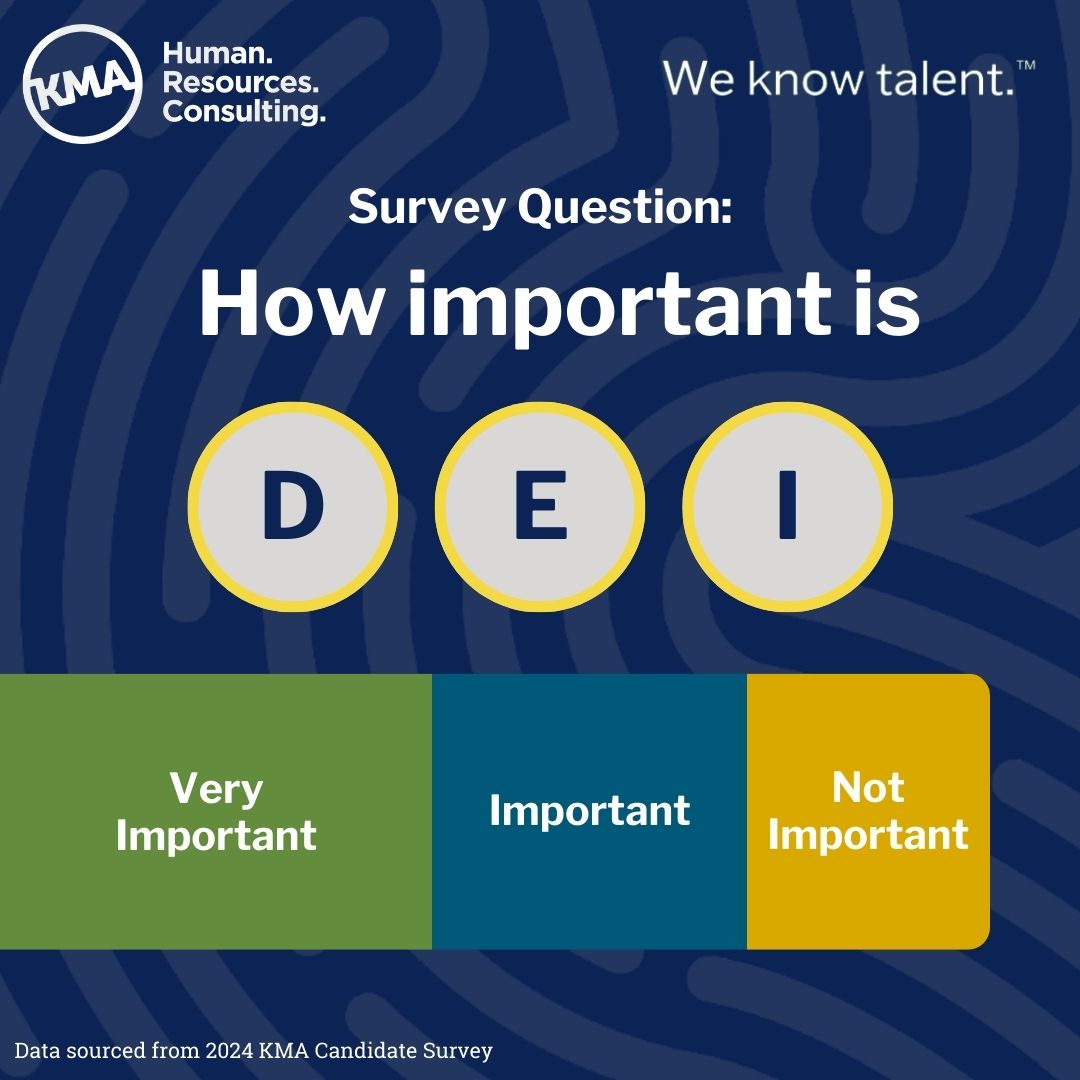
Candidates do considerable research on their prospective employers,
so it’s smart for business leaders to monitor and manage
their online reputation.
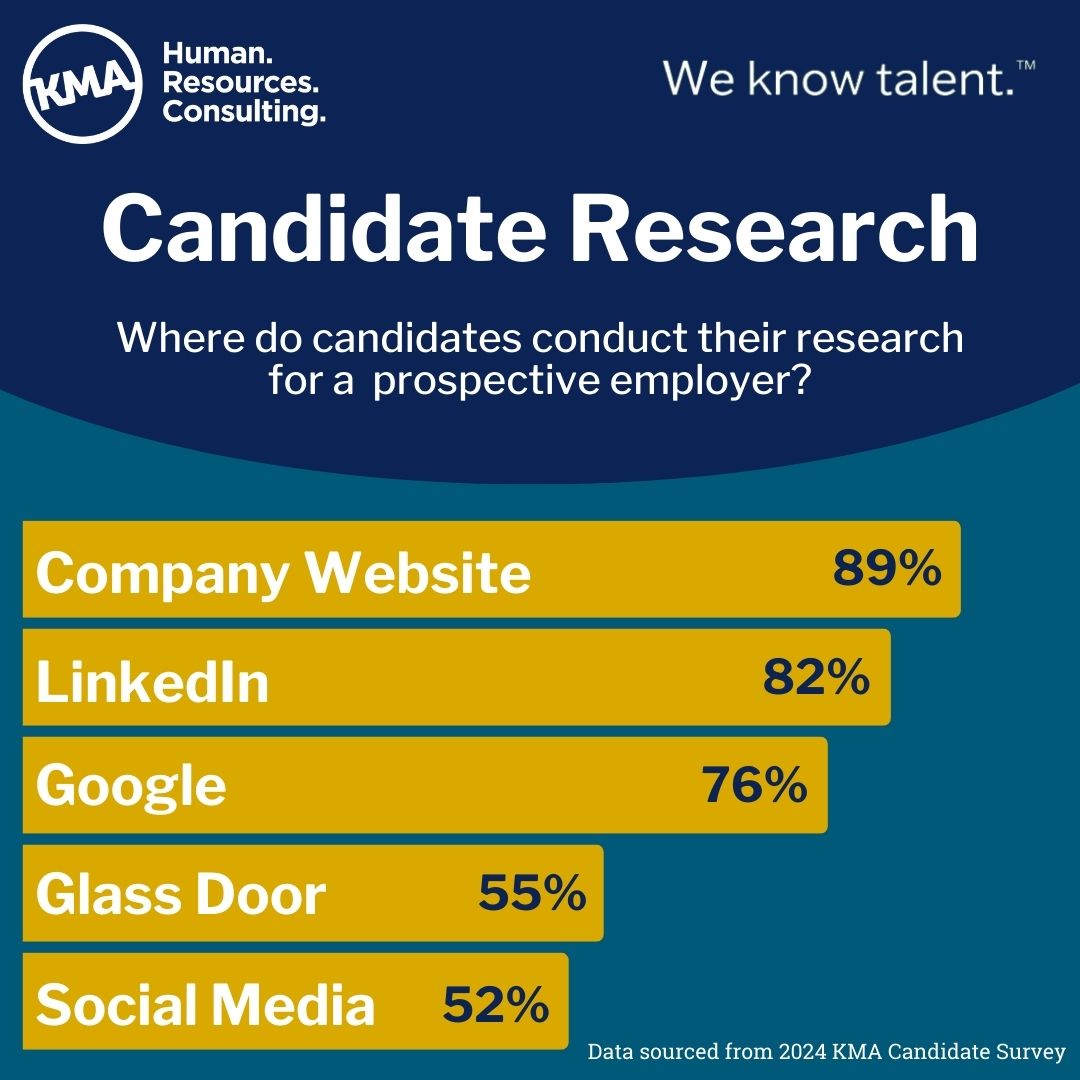
If you would like to learn more about our survey and how you can apply the results to enhance your workplace culture, enrich your employee value proposition, and improve your ability to attract and retain talent, reach out to the HR, recruiting and compensation experts at KMA today.
